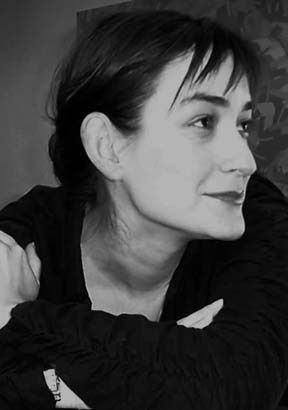Cows calve, horses foal, goats kid, but women do not child.
Another verb separates us from the noun of it, a distance between
cells that split in my body, my body, and her wet fur on my stomach.
I spent all morning as an animal, all afternoon covering
that knowledge up with dirt and sticks. I scratched
out a hole to bury my shame in. Someday my bones
would be gnawed at by something with fur. I tasted
bitter adrenaline down my throat. I laid with you
haunch to haunch and rolled back my reason. Once our species
could cooperate, we could drop bombs, invent plastic, extract
fossil fuels, burn and burn. Books showed species that could
decimate a herd. Our forward-facing eyes made us predator, but
it all seemed long ago: before we’d transcended to these
insulated rooms and screens. We studied bodies we’d made
extinct as a hobby. It seemed impossible we were still
roaming the countryside, still on the ships with such large
holds. The animals my daughter loves best she distorts with love:
bear’s fur matted under an arm, skunk’s head misshapen
with sleep. I watch her menagerie fray, try to rethread
the monkey’s arm to its body, brush out the horse’s tangle
of plastic mane. In her room, I can repair a species. When she
gets older someone will tell her how to groom the animal off
of herself. My body took calcium from my body to make her
milk, I nursed her with my bones. The verb nurse means to care
for in illness, to drink too long a single drink, to keep
a grudge too closely. Her cells and mine changed places,
I extracted my elements to feed her. What could be
wilder than the body of a mother? Believe in my bones the risk
I feel. Weather the new war our culture tells us not to speak
of. But my body knows to go outside in an earthquake, to huddle
down when the wind blows. To bite. To keen. To howl.
